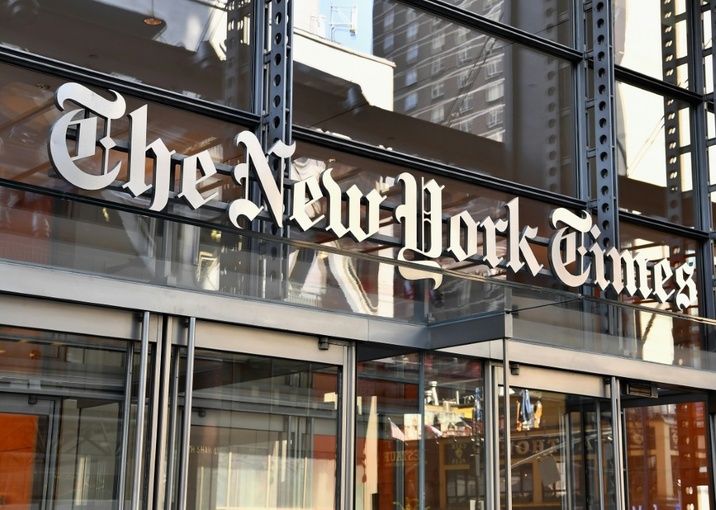The New York Times -- a torchbearer for the liberal left in America -- is facing flak for its coverage of transgender people, a criticism the newspaper flatly rejects.
Thousands of contributors and LGBTQ activists have accused the daily of giving too much coverage to concerns about treatments for transgender teenagers, fueling "panic" on the subject.
The allegation may surprise those who know the Times as a bulwark for gender and race rights during Donald Trump's presidency and for helping spur the #MeToo movement against sexual violence with its investigation of Harvey Weinstein.
The accusation also highlights the internal debates that sometimes go on within one side of America's so-called culture wars.
GLAAD, an LGBTQ media advocacy organization, has accused the Times of "irresponsible, biased coverage of transgender people" going back more than a year.
Last month it co-launched a campaign, backed by more than 100 other organizations, against the newspaper's coverage.
More than 1,000 New York Times contributors and another 34,000 media employees and readers of the newspaper have signed a separate open letter calling for the Times to improve its coverage.
They accuse the newspaper of writing multiple articles that exaggerate ethical and medical fears about treatments such as puberty blockers.
They allege that the Times has given too much credence to suggestions that the number of teenagers identifying with a gender different to the one assigned at birth -- 300,000 in the United States, according to one study -- is the result of a social trend or fad.
The activists also accuse the paper of focusing too much on the idea that some people regret transitioning.
"Our complaint is about editorial bias," Jo Livingstone, a 35-year-old literary critic who co-authored the letter and identifies by the pronouns they and them, told AFP.
"It's not necessarily about each individual article," Livingstone said. "But about where the NYT is placing emphasis and resources over time. It's a cumulative phenomenon of bias."
A. G. Sulzberger, the Times's chairman and publisher, backed staff in a speech Thursday.
He said they had "documented the worrying wave of anti-trans legislation advancing in statehouses across the country" and "detailed the horrific violence and discrimination trans people face."
Times journalists have also defended their right to highlight debates within the scientific community about treatments.
"Our duty is to be independent," dozens of editorial staff wrote in a letter to their union, reported by Vanity Fair.
"We pursue the facts wherever they may lead. We are journalists, not activists. That line should be clear," they added.
- 'Complicated' -
The campaign against the Times aims to influence news angles taken by the paper, which is a huge player in the American media and political scene and boasts around ten million subscribers to its website.
The debate comes within the context of several conservative-run states having passed laws banning care and treatment for transgender adolescents.
GLAAD notes that some Times articles have been used by elected officials in Texas, Alabama and Arkansas to argue their case.
"The New York Times could always be better (but) I actually found their articles are trying to cover a very complicated subject, and showing more than one side of the story," said Jack Drescher, a clinical psychiatry professor at Columbia University known for his work on gender identity.
However, he warns against a tendency to portray issues as controversial when they are not.
"In the United States, the medical community is clearly on the side of transition services," said Drescher.
"This is a clinical issue that has become a culture war issue," he added.
For its part, the New York Times appears committed to providing space for differing views.
Two days after GLAAD criticized the Times, the paper published an opinion piece by its columnist Pamela Paul entitled "In Defence of J.K. Rowling." The article said accusations of transphobia against the Harry Potter author were unfair.
The following day it published mixed reactions from readers.
arb/nr/dax/pdh/md
© Agence France-Presse
Your content is great. However, if any of the content contained herein violates any rights of yours, including those of copyright, please contact us immediately by e-mail at media[@]kissrpr.com.
Source: Story.KISSPR.com

